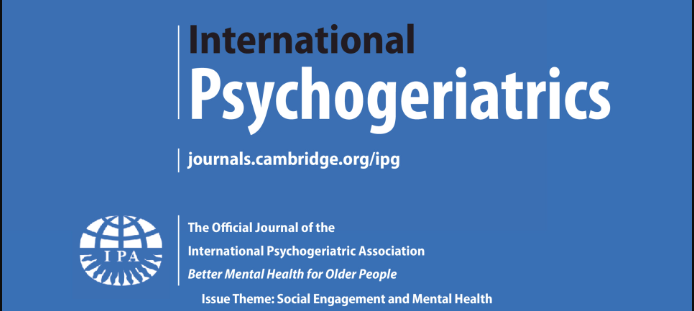P192: The Unmet Needs of People with Mild to Moderate Dementia During COVID-19 Pandemic in East Jakarta
IF 4.6
2区 医学
Q1 GERIATRICS & GERONTOLOGY
引用次数: 0
Abstract
Background:The number of elderly populations continues to increase as the advancement in healthcare grows, which is shown by the increase of life expectancy, the declining mortality rates, and the surge of people with dementia (PwD). This mental health issue is barely identifiable by health workers and the elderly themselves especially during COVID-19 pandemic. Therefore, it is important to evaluate and identify the unmet needs of people with dementia, especially mild to moderate dementia.Objective:To describe the unmet needs of people with mild to moderate dementia during COVID- 19 pandemic in 2021 in East Jakarta, Indonesia.Methods:This study is using the CDR (Clinical Dementia Rating Scale) to assess severity level of Dementia, then using the CANE (Camberwell Assessment of Need for the Elderly) instrument to assess the unmet needs of people with mild to moderate dementia.Results:96 participants were assessed suffer from mild dementia (75%) and moderate dementia (25%). This study procured five substantial unmet needs proportion, which are friendship (26.0%), psychological distress (20.8%), close relationships (19.8%), memory dysfunction (16.7%), and daily activities (10.4%). During interviews in conducting unmet needs assessments, people with mild to moderate dementia and accompanying families expressed their desire for an activity that would be useful to overcome their unmet needs.Conclusion:The COVID-19 pandemic for the people with mild to moderate dementia has an impact on friendships, psychological distress, memory dysfunction and daily activities so they need meaningful activities to overcome them.P192:COVID-19 大流行期间东雅加达轻度至中度痴呆症患者未得到满足的需求
背景:随着医疗保健事业的发展,老年人口的数量不断增加,这表现在预期寿命的延长、死亡率的下降以及痴呆症患者(PwD)的激增。尤其是在 COVID-19 大流行期间,医护人员和老年人本身几乎无法识别这一精神健康问题。因此,评估和确定痴呆症患者(尤其是轻度至中度痴呆症患者)未得到满足的需求非常重要。目的:描述 2021 年 COVID-19 大流行期间印尼东雅加达轻度至中度痴呆症患者未得到满足的需求。方法:本研究使用CDR(临床痴呆评定量表)评估痴呆症的严重程度,然后使用CANE(坎伯韦尔老年人需求评估)工具评估轻度至中度痴呆症患者未得到满足的需求。这项研究得出了五种未满足需求的重要比例,分别是友谊(26.0%)、心理困扰(20.8%)、亲密关系(19.8%)、记忆功能障碍(16.7%)和日常活动(10.4%)。在进行未满足需求评估的访谈中,轻度至中度痴呆症患者及陪同家属表达了他们的愿望,即希望有一项活动可以帮助他们克服未满足的需求。
本文章由计算机程序翻译,如有差异,请以英文原文为准。
求助全文
约1分钟内获得全文
求助全文
来源期刊

International psychogeriatrics
医学-精神病学
CiteScore
9.10
自引率
8.60%
发文量
217
审稿时长
3-6 weeks
期刊介绍:
A highly respected, multidisciplinary journal, International Psychogeriatrics publishes high quality original research papers in the field of psychogeriatrics. The journal aims to be the leading peer reviewed journal dealing with all aspects of the mental health of older people throughout the world. Circulated to over 1,000 members of the International Psychogeriatric Association, International Psychogeriatrics also features important editorials, provocative debates, literature reviews, book reviews and letters to the editor.
 求助内容:
求助内容: 应助结果提醒方式:
应助结果提醒方式:


